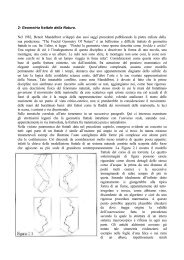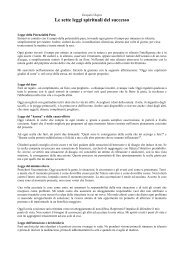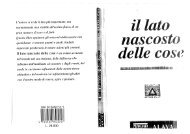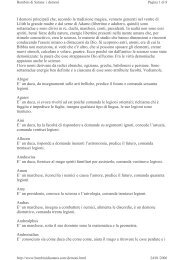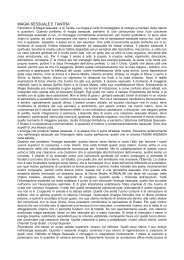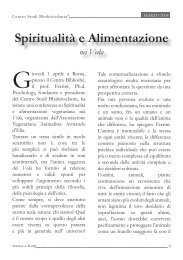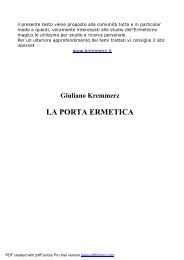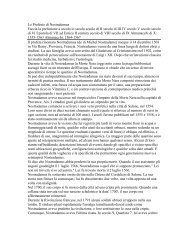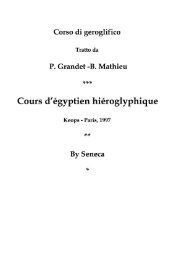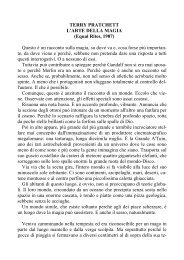44 ~ TALIBANfew weeks later the council of the Hizb-e-Islami gave Hikmetyar thepower to negotiate a power-sharing agreement with Rabbani.Pakistan was worried by Rabbani's successes and attempted to woo thejsame warlords to join the Taliban and form an anti-Kabul alliance. TheISI summoned Hikmetyar, Dostum, the Pashtun leaders of the Jalalabad!Shura and some Hizb-e-Wahadat chiefs to Islamabad to persuade them tojally with the Taliban. These warlords met with President Farooq Leghari|and army chief General Jehangir Karamat as negotiations continued for sweek between 7 and 13 February. Pakistan proposed a political alliancand in private a joint attack on Kabul with the Taliban attacking froralthe south, Hikmetyar from the east and Dostum from the north. 5 Tosweeten the Taliban, Babar offered to spend US$3 million to repair theroad across southern Afghanistan from Chaman to Torgundi on the Turkmenistanborder. But the Taliban refused to turn up to the meeting,spuming their Pakistani mentors yet again, despite personal appeals byInterior Minister Naseerullah Babar, the JUI chief Fazlur Rehmanthe ISI. The Taliban declined to have anything to do with the othewarlords whom they condemned as communist infidels.Islamabad's failure to create a united front against Kabul, emboldeneRabbani further. In early March, along with a 60-man delegation, he ioff on an extensive tour of Iran, Turkmenistan, Uzbekistan and Tajikistto lobby for international support and increased military aid. Iran, Russi;and India, who backed the Kabul regime, calculated that the conflict Inow entered a crucial stage as another battle for Kabul could increpolitical instability and influence the spread of Islamic fundamentalism iCentral Asia. Iran was incensed by the fall of Herat to a Pashtun forithat was vehemently anti-Shia and was backed by its regional rivals Palstan and Saudi Arabia. Russia considered the Kabul regime as more moder*)ate and pliant than the Taliban, as it worried about the security of ICentral Asian Republics. Moscow also wanted an end to the four-year-olcivil war in Tajikistan between the neo-communist governmentIslamic rebels, which was being fuelled from Afghanistan. India backeKabul simply because of Pakistani support to the Taliban.All these countries stepped up military aid to the regime forces. Russiasent technical help to upgrade Bagram airport facilities for the reginwhile Russian transport planes from Russia, Tajikistan and Ukrairdelivered Russian arms, ammunition and fuel to Kabul. Iran developed iair bridge from Meshad in eastern Iran to Bagram, where it flew insupplies. Pakistani intelligence reported that on a single day, 13 Irflights landed at Bagram with supplies. The CIA suspected thatShia allies of the Rabbani regime had sold Iran five Stinger anti-airmissiles for US$1 million each. (The US provided the Mujaheddin wit!some 900 Stingers in 1986-87 and after 1992 the CIA had launchedKABUL 1996: COMMANDER OF THE FAITHFUL ~ 45clandestine but unsuccessful buy-back operation to try and retrieve thoseStingers not utilised.) 6 Iran had also set up five training camps nearMeshad for some 5,000 fighters led by the former Herat Governor IsmaelKhan. Iran's aid to the regime was significant because Tehran had toswallow its anger with Masud over the slaughter of the Shia Hazaras inKabul the previous year. India meanwhile helped refurbish Ariana - theAfghan national airline now based in New Delhi - to provide the regimewith a reliable arms carrier. India also provided aircraft parts, new groundradars and money.In turn, Pakistan and Saudi Arabia stepped up arms supplies to theTaliban. Pakistan provided a new telephone and wireless network for theTaliban, refurbished Kandahar airport and helped out with spare partsand armaments for the Taliban's airforce, while continuing to providefood, fuel and ammunition, including rockets. The Saudis provided fuel,money and hundreds of new pick-ups to the Taliban. Much of this aidwas flown into Kandahar airport from the Gulf port city of Dubai.The extent of outside interference worried the Americans: after a lapseof four years they were once again beginning to take an interest in tryingto resolve the Afghan conflict. In early March, Congressman HankBrown, a member of the Senate Subcommittee on Foreign Relations forSouth Asia, became the first American elected representative in six yearsto visit Kabul and other power centres. He hoped to call a meeting of allthe Afghan factions in Washington. 7The US Assistant Secretary of State for South Asia Robin Raphelarrived in Islamabad to review US policy towards Afghanistan. Startingon 19 April 1996, Raphel visited the three power centres of Kabul, Kandaharand Mazar-e-Sharif and later three Central Asian capitals. 'We donot see ourselves inserting in the middle of Afghan affairs, but we considerourselves as a friend of Afghanistan which is why I am here to urge theAfghans themselves to get together and talk. We are also concerned thateconomic opportunities here will be missed, if political stability cannotbe restored,' said Raphel in Kabul. 8 Raphel was referring to a proposedgas pipeline to be built by the American oil giant Unocal to carry gasfrom Turkmenistan across Afghanistan to Pakistan. The US waited tomake the pipeline acceptable to all Afghan factions and urged Pakistanto make up with the Rabbani regime and bring the Taliban and the Rabbaniregime to the peace table.The US moved on other fronts. During a UN Security Council debateon Afghanistan on 10 April 1996, the first to be held in six years, itProposed an international arms embargo on Afghanistan. Raphel wantedto use this as a lever to persuade all the involved regional countries toa gree to non-interference in Afghanistan, while at the same time lending
J46 ~ TALIBANgreater weight to UN efforts to convene a conference of all the Afghan 1factions. 9The Clinton administration was clearly sympathetic to the Taliban, asthey were in line with Washington's anti-Iran policy and were important |for the success of any southern pipeline from Central Asia that wouldavoid Iran. The US Congress had authorised a covert US$20 millionbudget for the CIA to destabilize Iran, and Tehran had accused Washingtonof funnelling some of these funds to the Taliban - a charge thatwas always denied by Washington. Bhutto sent several emissaries toWashington to urge the US to intervene more publicly on the side ofPakistan and the Taliban, but despite a common antipathy to Iran, Washingtonresisted, refusing to take sides in the civil war. Raphel vehementlydenied that the US was aiding the Taliban. 'We do not favour one factionover another nor do we give any group or individual support,' she toldme Ṁoreover the US remained sceptical that the Taliban would conquerKabul in the near future. Raphel described the Taliban as highly fractionalized,inexperienced, lacking strong leadership and inept at administrationwhile their obstinacy had alienated other factions. 'These weaknessescombined with Masud's growing strength, appear to be shiftingthe balance against the Taliban somewhat, and will prevent them fromachieving their stated goal of taking Kabul. While the Taliban appears to.have reached the limit of its expansion, its position in the Pashtun southis solid,' she said. 10Washington also courted the other warlords. Several visited Washington,starting with General Dostum who met US officials in Washingtonon 11 April 1996. Afghan leaders or their representatives from'all factions participated in an unprecedented Congressional hearing injWashington held by Senator Hank Brown between 25 and 27 June. Howeverin an American election year and with little enthusiasm for renewedinvolvement in the quagmire of Afghanistan, Washington's aims couldonly be limited, even though the arms and drugs trade proliferating insideAfghanistan worried Washington.US reluctance to support the Taliban was also influenced by Pakistan'sfailure in creating an anti-Rabbani alliance. This proved even moreembarrassing for Islamabad when, in May, 1,000 of Hikmetyar's troopsarrived in Kabul to support the government and defend the front lineagainst the Taliban. On 26 June 1996 Hikmetyar himself entered Kabulfor the first time in 15 years, to take up the post of Prime Minister offeredby the regime, while his party accepted nine other cabinet posts in thegovernment. In retaliation, on the same day, the Taliban launched a massiverocket attack on Kabul in which 61 people were killed and over Iinjured.KABUL 1996: COMMANDER OF THE FAITHFUL ~ 47Rabbani followed up his political breakthrough with Hikmetyar with avisit to Jalalabad where he attempted to persuade the Jalalabad Shura tojoin his government. He said he was willing to step down in favour ofany Afghan leader and proposed an all-party conference in Jalalabad toelect a new head of state. By August Dostum had also agreed to a truceand he reopened the Salang Highway which connected Kabul with thenorth of the country for the first time in over a year. Rabbani's agreementshad finally got his 'intra-Afghan dialogue' off the ground. 'This alliancecan be consolidated by bringing in more opposition figures to create apeace axis and I call on others to join the process so that a formula foran interim government can be found,' Rabbani told me in Kabul. 11 It wasa significant achievement, which infuriated the Taliban who realized thatthey would have to move quickly against Rabbani before he consolidatedthese alliances.Camped outside the capital, the Taliban had been rocketing Kabulmercilessly throughout the year. In April 1996 alone, the Taliban fired866 rockets, killing 180 civilians, injuring 550 and destroying large tractsof the city - a repetition of Hikmetyar's attacks in 1993-95. In July 1996Taliban rockets fell close to the newly appointed UN mediator forAfghanistan, the German diplomat Norbert Holl who was visiting Kabul.Holl was furious. 'This is no way to treat a peace emissary, by shooting athim. If you receive a guest in your house you don't start spitting at him.It demonstrates a sort of contempt for my mission,' he told the Taliban. 12The Taliban's rocket attacks were punctuated by frequent groundassaults against Masud's front lines south and west of the city. At the endof May, I stood on a rain-swept hill with Masud's troops outside Kabuland watched through binoculars as dozens of Taliban in pick-ups tried topunch through Masud's lines along a road in the valley below under thecover of a Taliban artillery barrage. In return Masud's Russian-made D-30howitzers pounded the hidden Taliban artillery. The thud of shells shookthe mountains, deafening the ears and making me sway at the knees. Thegunners were stone-deaf due to the constant shelling and the lack of earprotectors.Behind Masud's lines, lorry-loads of fresh troops and ammunition groundtheir way up the hill through the mud to replenish supplies. 'The Talibanhave enormous supplies of ammunition and they shoot off thousands ofshells but their gunners are very inaccurate. However they are makingbetter use of their tanks and pick-ups than a year ago,' said a general fromMasud's army. 'Their tactics are still poor, relying more on frontal assaultsand there seems to be no effective chain of command,' he added. TheTaliban were unable to concentrate enough firepower and manpower onone front to achieve a breakthrough into the city and Masud was constantlybreaking up their formations. Although he could hold the line
- Page 1 and 2: YALE NOTA BENE"The broader storyher
- Page 3 and 4: TalibanMilitant Islam,Oil and Funda
- Page 5 and 6: Vi ~ CONTENTSChapter 8A Vanished Ge
- Page 7 and 8: AFGHANISTAN•^ UZBEKISTAN J TAJIKI
- Page 9 and 10: 2 ~ TALIBANaccounts for some 40 per
- Page 11 and 12: "6 ~ TALIBANgas riches of landlocke
- Page 13 and 14: 10 ~ TALIBANgious mix that was to m
- Page 15 and 16: Part 1History of theTaliban Movemen
- Page 17 and 18: 18 ~ ISLAM OIL AND THE NEW GREAT GA
- Page 19 and 20: 22 ~ ISLAM OIL AND THE NEW GREAT GA
- Page 21 and 22: 26 ~ ISLAM OIL AND THE NEW GREAT GA
- Page 23 and 24: 30 ~ ISLAM OIL AND THE NEW GREAT GA
- Page 25 and 26: 34 TALIBANKabul- Hikmetyar had alli
- Page 27 and 28: 38 ~ TALIBANrHERAT 1995: GOD'S INVI
- Page 29: 42 ~ TALIBANdo manage to take Kabul
- Page 33 and 34: 50 ~ TALIBANas they hung from steel
- Page 35 and 36: 54 ~ TALIBANthey would help rearm t
- Page 37 and 38: 58 TALIBANGul Mohammed Pahlawan, Gh
- Page 39 and 40: 62 TALIBAN2,500 Taliban, who had re
- Page 41 and 42: 66 TALIBANshould throw all aid agen
- Page 43 and 44: 70 ~ TALIBANyears of battle and hel
- Page 45 and 46: 74 ~ TALIBANThousands of Hazaras we
- Page 47 and 48: 78 TALIBANhas become a plague,' sai
- Page 49 and 50: NEW STYLE FUNDAMENTALISM OF THE TAL
- Page 51 and 52: 86 TALIBANsity students - Hikmetyar
- Page 53 and 54: 90 TALIBANSharia was heavily influe
- Page 55 and 56: 94 TALIBANinflamed the debate in th
- Page 57 and 58: 98 TALIBANizing factor of Islam, it
- Page 59 and 60: 102 TALIBANadministrations made the
- Page 61 and 62: 106 ~ TAUBANfrom working, but it no
- Page 63 and 64: TALIBANUniversity, she held down a
- Page 65 and 66: 114 TALIBAN A VANISHED GENDER 115Ta
- Page 67 and 68: 118 TALIBANUS$1,300 - a small fortu
- Page 69 and 70: 122 TALIBANper cent of the total Pa
- Page 71 and 72: 126 TALIBANequipment, no electricit
- Page 73 and 74: 130 ~ TALIBANfight with the Mujahed
- Page 75 and 76: 134TALIBANAugust 1996 noted that Bi
- Page 77 and 78: 138 ~ TALIBANwho were using the Kho
- Page 79 and 80: 11DICTATORS AND OILBARONS: THE TALI
- Page 81 and 82:
146 TALIBAN DICTATORS AND OIL BARON
- Page 83 and 84:
150 — TALIBANgrowth of beards and
- Page 85 and 86:
154TALIBAN1998 when international o
- Page 87 and 88:
158 ~ TALIBANaround Afghanistan? Af
- Page 89 and 90:
162 TALIBAN ROMANCING THE TALIBAN 1
- Page 91 and 92:
166 TALIBAN ROMANCING THE TALIBAN 1
- Page 93 and 94:
ROMANCING THE TALIBAN 2: 1997-99 17
- Page 95 and 96:
174 — TALIBANnon-Russian pipeline
- Page 97 and 98:
178 — TALIBANROMANCING THE TALIBA
- Page 99 and 100:
182 ~ TALIBANApril 1999. 'The US ha
- Page 101 and 102:
186 ~ TALIBANters or the transport
- Page 103 and 104:
190 ~ TALIBANThis Wild West of free
- Page 105 and 106:
194 ~ TALIBANgovernance. Pakistani
- Page 107 and 108:
198 TALIBAN SHIA VERSUS SUNNI: IRAN
- Page 109 and 110:
202 TALIBAN SHIA VERSUS SUNNI: IRAN
- Page 111 and 112:
206 — TALIBANin Afghanistan - to
- Page 113 and 114:
210 — TALIBANand antagonism. The
- Page 115 and 116:
214 ~ TALIBANdrawn since 1996 - a P
- Page 117 and 118:
218 ~ TALIBANated and severely puni
- Page 119 and 120:
Origins of Members of the Taliban M
- Page 121 and 122:
APPENDIX 3 ~ 227Appendix 3A CHRONOL
- Page 123 and 124:
230 ~ TALIBANgraves near Shebarghan
- Page 125 and 126:
234 ~ TALIBAN8 June. US FBI places
- Page 127 and 128:
238 ~ TALIBAN1995 January16 MarchAp
- Page 129 and 130:
242 ~ TALIBANJune21 August10 Septem
- Page 131 and 132:
246 ~ TALIBANDupree, Nancy Hatch, A
- Page 133 and 134:
250 ~ NOTESChapter 31 Interview wit
- Page 135 and 136:
254 ~ NOTESmuddin, Religious Police
- Page 137 and 138:
258 NOTES13. The Japanese company M
- Page 139 and 140:
262 ~ NOTES28. Waxman, Sharon, 'A c
- Page 141 and 142:
Abbas, Mulla Mohammed 22,61,100Abda
- Page 143 and 144:
INDEX - 270Hazaras (continued)burea
- Page 145 and 146:
INDEX ~ 274nF»r\/FaliViar» milita
- Page 147:
INDEX ~ 278Talibans (continued)Sunn




